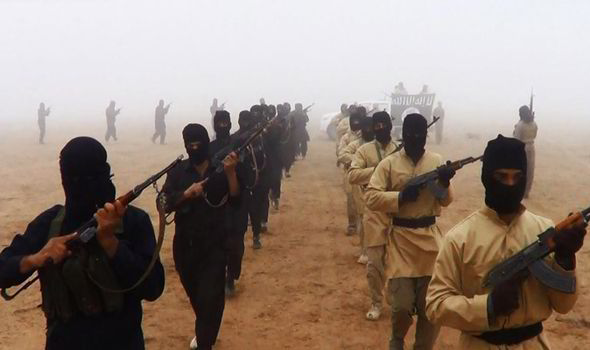Whether subtle or explicit, the where may not be as significant as the what we are dealing with and the who we are talking about…
Last week, the Pentagon announced that it will now officially recognize and reference the United States’ most pervasive enemy according to the commonly held nomenclature used by our media and general public, ISIS (the Islamic State of Iraq and Syria). In its justification, a Pentagon spokesperson offered that ISIS means the same thing as ISIL (the Islamic State of Iraq and the Levant) and Daesh, a derogatory term in the eyes of our foe used to encapsulate the Arabic name for the Islamic State—al-Dawla al-Islamiya fi al-Iraq wa al-Sham. Furthermore, the spokesperson went on to note that ISIS is the term that has become the standard to which America has grown accustomed.
But do such simple explanations do justice to the posture of this group and the objective it’s marching toward? Does the difference actually matter?
The answers to these questions may be subjective, and the purpose herein is not necessarily to make a case for one over the other, but the matter is nevertheless worthy of analysis. A dissection of the simplified four-letter terms ISIS and ISIL reveal a far more nuanced and complicated issue encompassing world geography, American alliances, and this enemy’s strategic goals. While one could certainly argue that the insulting nature with which “Daesh” is received by this group should in and of itself give the descriptor a leg up over the other options, for the sake of conversation, we will focus on the primary western world identifiers of ISIS and ISIL.
With the use of ISIS, the focus relegates matters to the stated territories of Iraq and Syria. These countries serve to represent war-torn incubators for the group, both of which are composed of political systems and civil strife that enable our enemy’s ability to plan and execute and present some obstacles to our efforts to eradicate their personnel by fighting them on their home turf. ISIS furthermore reflects the areas where the group’s established strongholds and safer havens are based and where they originated. Therefore, the designation is eponymous and serves to reflect what was and is with no appropriation for what may or will be. It also assigns to the group a smaller territory in name, which brings with it an opportunity for subliminal messaging that could be utilized for added psychological warfare to convey refusal to dignify the enemy with broader territorial recognition.
ISIL, the name used by various policymakers on both sides of the political aisle and the widely embraced standard throughout our intelligence community, extends coverage of the group’s footprint with the inclusion of the Levant. This is the grouping of countries constituting the western part of the Middle East or eastern shores of the Mediterranean—an area that consists of Syria, Lebanon, Israel, and Jordan. Syria’s neighbors to the south represent countries that share and seek close ties with the US and therefore are bound by vulnerabilities to action by the enemy. In contrast, however, these nations also operate under vastly different political processes and religious practices. As such, with respect to Lebanon and Jordan in particular, they also serve as hosts for groups with allegiance to the enemy, which could serve as tools to forge its expansion throughout the region. This is a growth that would not only further the threat to US interests in the region and strengthen the launchpad for continued operations in western lands—it would also further Israel’s exposure. ISIL therefore denotes a group through inclusion of not only where it is and hails from—Iraq—but also where it’s going and aspires to be.
Whether subtle or explicit, the where may not be as significant as what we are dealing with and the who we are talking about. And that is an enemy that continues to bring the fight to us and our allies no matter what name is used to call them out.
Brandon Blackburn is a Senior OpsLens Contributor and former CIA Counterterrorism Officer with a journalism degree from the University of Missouri and an MBA with a concentration in International Business. During his time with the CIA, Brandon served multiple tours in the Middle East, to include Iraq and Jordan, and in Afghanistan. Brandon consults with businesses and media on national security related issues with his consulting firm B4B Enterprises. He can be followed on Twitter @Bran_Blackburn.
To contact or book OpsLens contributors on your program or utilize our staff for your story, contact [email protected].

















